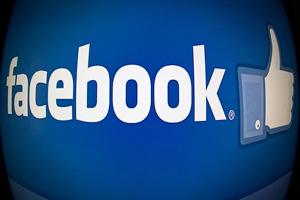Your Facebook Likes Can Even Reveal Whether You Are Gay: Study

Bangalore: A new study on Facebook has revealed that clicking on the ‘like’ button has more to say than just liking the content. It could reveal whether you’re a gay or even how you vote. It may even conclude saying that you’re unmarried with high IQ and have a weakness for Nicotine.
The study was conducted by analyzing the likes of more than 58,000 American Facebook users making guesses about their personalities and behaviors that is whether they drank, smoked or consumed drugs.
According to David Stillwell, a researcher from Cambridge University, the results of the study could come as a surprise as a person’s likes would say more than what he’d realize.
Facebook’s ‘like’ button was launched in 2009 and the small thumbs up button has been popularly used in the site all over the world. As of last year Facebook said that, roughly 2.7 billion new likes poured into the internet every day. There was enormous data available to marketers, managers and anyone who was interested in users’ inner lives, especially those who were not careful about their privacy settings.
Researchers were able to predict whether men were homosexual with 88 percent accuracy by their ‘likes’ even if those users did not explicitly share their sexuality on the site.
The study found that Facebook likes were linked to gender, ethnicity, politics, and alcohol and drug abuse. These likes also mapped to relationship status, number of Facebook friends as well as half a dozen different personality traits. Some likes were more revealing than others where researchers could guess whether the person was black or white, 95 percent of the time. Researchers found it trickier to identify drug abusers and even whether users were children of divorcees. However this was way better than wild guesses.
Facebook’s default privacy settings meant that one’s ‘likes’ were public to anyone and the site’s own algorithms used these likes to dictate what stories end up in users’ news feeds, while advertisers could access which were the most effective ads to show as one would browse.
